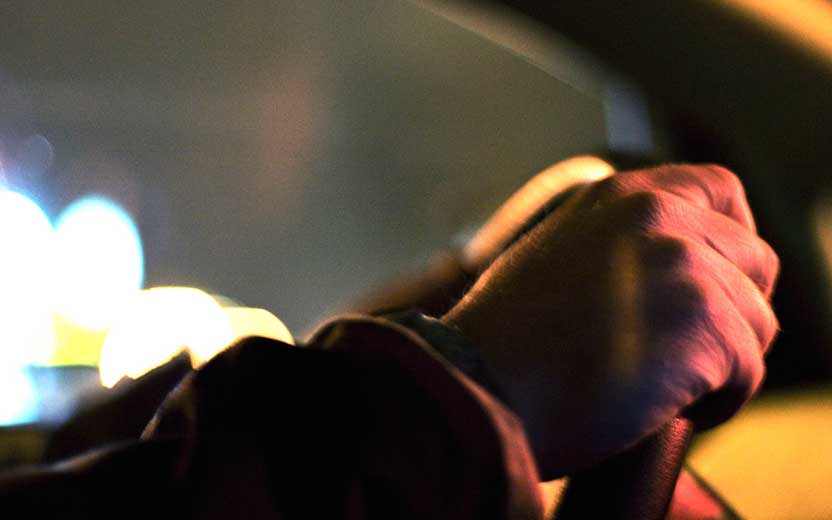By Marcus Fernandez
Knowing whether you could be held liable for someone’s injuries is usually pretty easy. Driving while distracted and not watching the road are pretty obvious examples of liability. Allowing your dog to roam the neighborhood, even if it has a tendency to bite, is another. There are, however, some situations where you could be liable that may not be as obvious. Here are seven of the most common.
Leaving your keys in the car
You’re in a rush to get to the store before it closes, so you leave your keys in the car as you run inside. If someone takes the car and has an accident, you could be held liable.
Drivers in Florida are required by law to take the following steps before leaving their vehicles unattended:
- Turn off the engine
- Lock the ignition
- Remove the ignition key from the vehicle
- Set the parking brake
- Turn the front wheels toward the curb
Failing to do any of these things is a noncriminal traffic offense. That offense could be used by an injured party to prove your conduct was negligent in a civil case. Leaving your keys in the car violated the standard of care expected of you and could convince a jury or a judge to hold you liable.
Attractive nuisances that can make you liable
As a general rule, someone trespassing on your property cannot hold you liable for injuries. This holds true, as long as you do not intentionally or recklessly place the person at risk of harm. A big exception to this rule is the presence of an attractive nuisance that causes an injury to a child.
You might be liable for damages if you know of a dangerous condition that could entice a child onto your property and he/she is injured. Examples of attractive nuisances include:
- Swimming pools
- Trampolines
- Refrigerators or other appliances in which a child could become trapped
- Lawnmowers and power tools left unattended
To avoid liability, you must take steps to prevent a child from coming onto the property. This could include erecting a fence with a self-closing gate or putting away tools and other objects that could cause injury.
Liability under Florida dram shop laws
Businesses, such as bars and restaurants, that serve alcohol could be liable if a patron becomes intoxicated and injures someone. Dram shop laws exist throughout the country. It makes sellers of alcohol responsible if they serve someone who already appears intoxicated and that person causes an accident with injuries.
The Florida dram shop law is different from laws in other states. Businesses serving alcohol in Florida are liable if they willfully and unlawfully serve or sell to an underage patron, or to someone who they know has a drinking problem. An accident victim could file a lawsuit against the person causing the accident and, if the conditions of the dram shop law are met, against the business that sold the alcohol. Victims of drunk drivers should discuss the circumstances and facts with a personal injury attorney. They can help determine if the dram shop rule applies.
Social hosts and serving alcohol
The state’s dram shop law only applies to commercial establishments, and would not apply to a party hosted at your home. Still, you could be liable for an accident under principles of negligence law. For example, if a guest who has been drinking at your party slips on a wet floor, he might have a claim for damages. Even though dram shop rules do not apply premise liability law would. As the social host, and a homeowner, you are responsible for keeping walkways safe.
Liability is also not limited to accidents that only happen on your property. Serving alcohol to someone who is underage is a crime in Florida whether you are a bar owner or a homeowner entertaining friends. If you serve alcohol to an underage drinker and they have an accident, your violation of the law could be used to prove negligence. The law establishes that you have a standard of care and if violated, you could be held liable.
The burden of proof can make a difference
The criminal trial of O.J. Simpson caught the attention of the American public who watched the televised proceedings. Although Simpson was acquitted of murder charges, he was later ordered to pay damages in a civil trial.
The case illustrates how a favorable verdict in a criminal case does not protect someone from being liable for damages in a civil claim. The reason has to do with the different burdens of proof in civil and criminal cases.
Burden of proof is the standard a party must meet in order to prove its case. In a criminal case, the prosecution has the burden of proving guilt beyond a reasonable doubt. This means that jurors can only convict if the evidence eliminates any logical conclusion other than the guilt of the accused.
In civil cases, the injured party must meet the burden called the preponderance of the evidence. With the preponderance of the evidence, a plaintiff must prove that it is more likely than not that the person being sued is liable for the accident.
Surprises associated with vicarious liability
Vicarious liability is a legal concept which essentially that means you could be held liable for someone else’s negligence. For instance, you could be liable if an employee causes an accident where a guest of your business is injured. An accident caused by your employee’s negligence while acting within the scope of their employment could make you responsible for damages.
Holding someone liable for damages caused by the conduct of another person also applies to motor vehicle accidents. If you lend your car to someone who has an accident, vicarious liability could make you responsible for the victim’s injuries even if you are not present. Florida law limits the amount you could be forced to pay to a maximum of $100,000 in damages.
Liability and dog bites
A fence around your yard and a warning sign might seem to indicate that you’ve done enough to escape liability if your dog bites someone. Unfortunately, you could be wrong. Florida is a strict liability state making dog owners responsible for injuries caused by their dogs.
You are liable if your dog bites someone, regardless of whether it is on your property or in public. The statute reduces the liability of a dog owner when the bite occurs because of the negligence of the victim. Owners can also avoid liability by prominently displaying a sign on their property warning people of the presence of the dog by using the words “bad dog.”
The problem for a dog owner who follows the law and puts up a sign has to do with the age of the victim. Under the statute, the property owner remains strictly liable for any injuries or damages suffered by victims that are under six years of age.
Talk to a Florida personal injury lawyer
It may not be as clear as you think to determine whether someone is liable for an accident. If you are injured, a Florida personal injury attorney is your best source of legal advice and guidance about your right to obtain compensation.
Image courtesy of Alon, http://www.flickr.com/people/photoloni/


